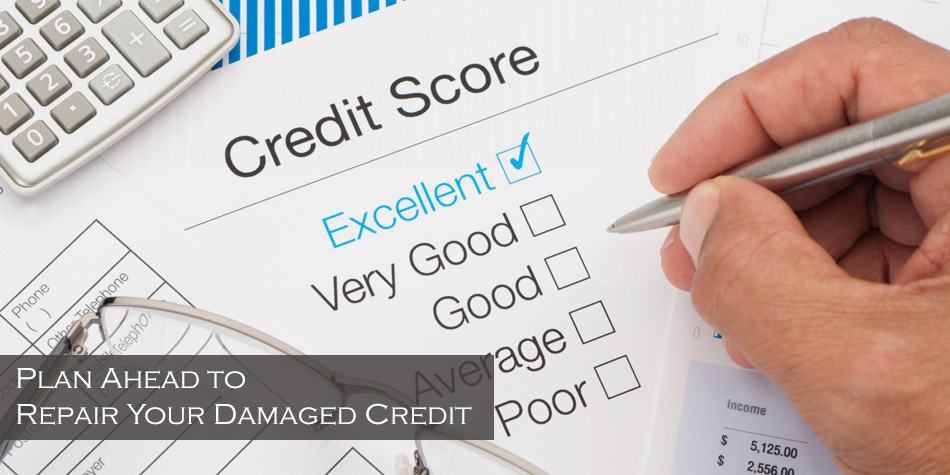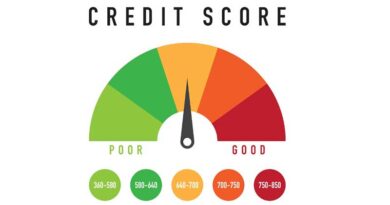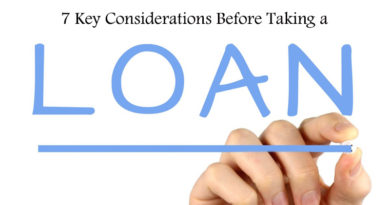Plan Ahead to Repair Your Damaged Credit
It doesn’t take much time to damage your credit, and unforeseen life events beyond your control can often leave you unable to prevent that damage from occurring. But it will take some patience and planning to repair your credit, in preparation for making a major purchase that will require financing.

There are things you can begin to do immediately that will improve your credit score. And some of them may gain you a few points quick, but you really need to be thinking long-term, especially if you want to buy a house or a new car a few years down the road.
Here are 5 key “moves” you can make that will help repair your credit under a years-long strategy:
1. Learn From the Experts
Check out articles focused on repairing your damaged credit at repair.credit, and you will learn what others did to improve their credit after it had sunk to “poor” or “bad.” Industry experts and “real people” who have fixed their credit scores will give you invaluable insights. The site is packed with seemingly endless information and has some articles on some very detailed topics.
2. Do What You Can RIGHT NOW
To improve your FICO and other credit scores, there are some things you can do immediately. Check your credit report for any possible errors and learn how to dispute them with the relevant credit bureau. Set up payment reminder emails for all of your current recurring monthly payments.
If you have any small debts, pay them off in full quickly. If there is any way you can reduce your total debt load in the short run, do it, and you should see relatively quick (if modest) results on your credit score.
3. Focus on Improving Payment History
The number one category that affects your credit score is your payment history. Late payments or those never made at all have a big negative impact.
First, if you are behind on any payments, find a way to catch up as soon as possible. If that means getting a student loan deferral or prioritizing one debt over another temporarily to get out of delinquency, do it.
Then you need to make all payments on time going forward. If that means dropping certain non-essential services or cutting down on utility usage or setting up autopay, you have to do it because if payments continue to be late, instead of rising, your score will sink or stay stagnant at best.
4. Manage Credit Cards Responsibly
Lowering the amount of debt you are carrying is another huge chunk of how you raise your credit score. The easiest way to do this is by paying down your credit card balances. You could also ask for a credit line increase since the ratio between total credit and still-available credit is key to how your credit score will be affected.
Don’t move balances from card to card unless you have a very, very good reason why you must do it: if anything, that will hurt your score and certainly not help it. Don’t make just the minimum payments. And finally, don’t open extra cards you don’t need just to increase your credit line, as that approach often backfires.
5. Maintain a Few Accounts for a Long Time
You could hurt your credit score if you suddenly open multiple new accounts within a short period of time. Conversely, it will hurt your score more if you shop for rates on new credit card or other accounts sporadically versus all within a single month. That’s because the latter is viewed as a single act of looking for a new account, while the former is counted as constantly looking for new accounts.
Account age matters with credit scores, so opening new accounts lowers your “average account age” and hurts you. But closing a lot of accounts can hurt you too. The best route is to just maintain a few necessary accounts long-term.



